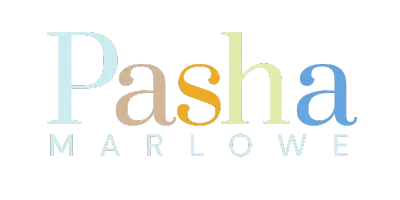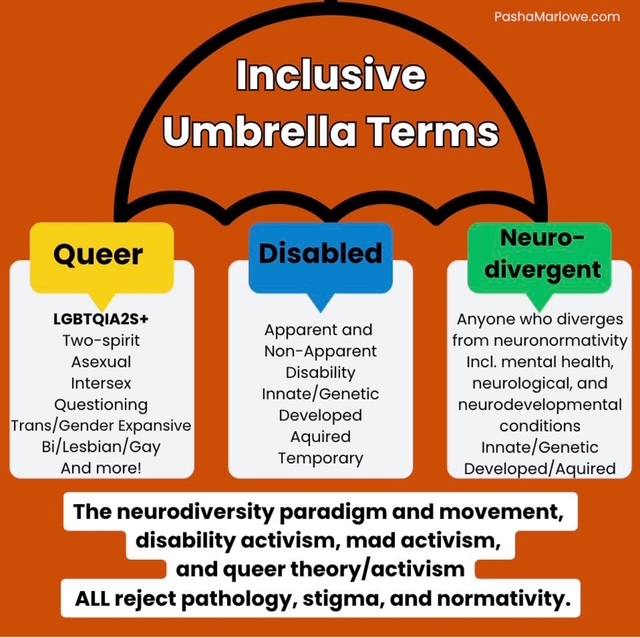

The importance of inclusive & expansive terms
People often ask “What is the point of the term "neurodivergent" when it is so expansive, it includes anyone who has ever been labeled or diagnosed "disordered"*?
What is the point of the term "disabled" when it is so expansive, it includes the lived experiences of anyone who has the privilege of growing old?
What is the point of the term "queer" when it is so expansive, it includes even those who are questioning their sexual, gender, or relational identity?
If any of these questions are coming to your mind, ask yourself:
"Why does it bother me that these terms are inclusive and expansive?"
Do you see yourself in one term or identity, but not the other and take offense that they are all in the same graphic and conversation?
Do you resist the idea that YOUR identity may be pathologized and stigmatized while you are pathologizing and stigmatizing the lived experience of others represented in this graphic and conversation?
Do you experience internalized ableism, sanism, homophobia/transphobia, or any other "isms" or "phobias"? Where did you learn these views?
If nothing else, consider who and what systems created the idea of "normal" in the first place and how do they benefit from you taking it as "truth"?
*All of the umbrella terms-queer, disabled, and neurodivergent-reject pathology, the language of "disorder", stigma, and normativity. All are connected to socio-poltical and justice movements.
To be neurodiversity-affirming and neuroinclusive, you must also be LGBTQIA2S+/queer-affirming and inclusive, as well as disability-affirming and inclusive. You can't reject one form of normativity without challenging the other.
To affirm or include the neurodivergent, disabled, and queer communities is also to center intersectionality and the myriad of intersecting marginalized identities that are oppressed by systems of power and privilege and impact lived experiences.
Copyright 2025. Pasha Marlowe. All Rights Reserved




